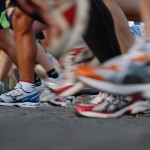Every week in The Kiddy Pool, Erin Newcomb confronts one of many issues that parents must deal with related to popular culture.
This week, Disney’s Epcot Center closed its controversial new “Habit Heroes” exhibit (intended as anti-obesity education) amid criticism that creating villains with names like “Lead Bottom,” “The Snacker,” and “The Glutton” promoted shame more than health. A number of organizations rejected the simplistic, personal-responsibility focused tone of the exhibit, citing instead numerous cultural factors that contribute to our nation’s current obesity epidemic. I agree that an environment filled with cheap, accessible, processed foods and few opportunities for physical labor is an ideal climate for cultivating obesity, yet there’s also truth (however mishandled) that individual choices and habits can make a difference. One of the biggest problems for me here is that young children are being targeted, when it is parents who typically buy groceries, prepare meals (or purchase them), and set the example for physical activity (or lack thereof).
That responsibility doesn’t make parents villains, but a child’s health environment is both macrocosmic (the larger society) and microcosmic (the family unit). It seems unreasonable to expect children to defy both with no resources. Even the idea of setting up health heroes and villains fits within a larger cultural framework of labeling some foods as “good” and some as “bad” or even “sinful,” as if food possessed a moral status. Food isn’t actually capable of virtue or vice, and too often those food categories get conflated with the humans who consume them, so that what we eat—or more often, what we look like we eat—defines us. From a Christian standpoint, it’s not necessarily what we eat but why and how that exemplifies our relationship with food; that food can lead to sin seems obvious, but the sin resides within our hearts, not on our plates.
Just this morning my pastor shared a quote from Thomas Aquinas (I’m paraphrasing here) that sharing an abundance of food is not charity but justice. Our nation’s obesity epidemic signals a crisis of physical and spiritual ill health, and that struggle is set within a global context where nations wrestle either with food abundance or scarcity. As a nation, we are collectively the “haves,” and contemplating food from a spiritual perspective begs for analyzing what food signifies (and what it doesn’t signify) beyond our waistlines and health insurance costs. I don’t underestimate the human or financial costs of obesity-related complications, but when food and eating are packaged as heroes and villains, I think we need to investigate further why, in a nation of relative plenty, we are starving for real virtue.











